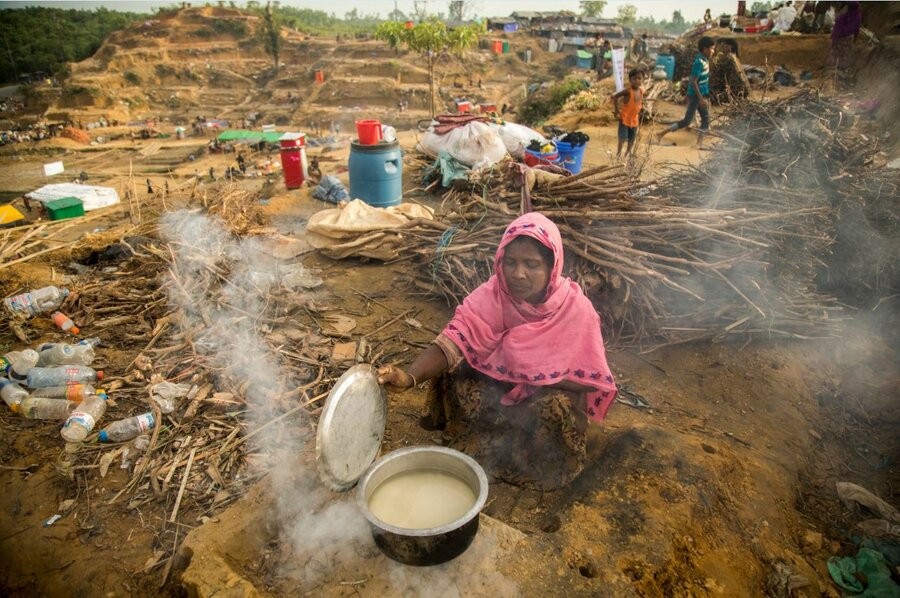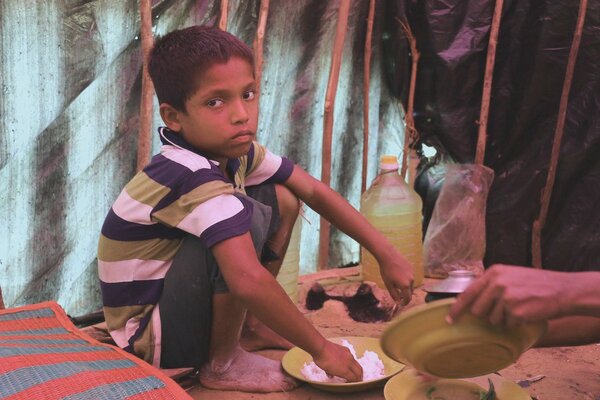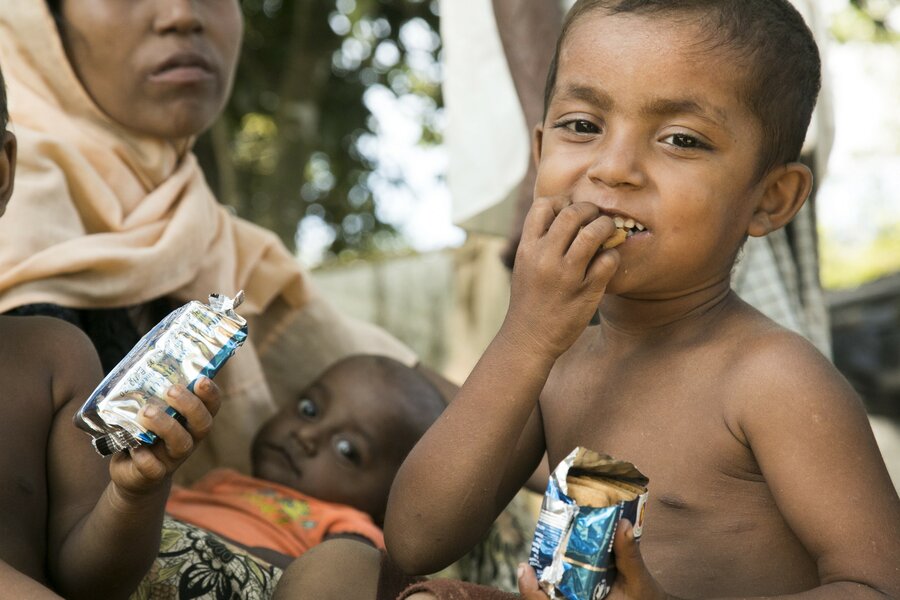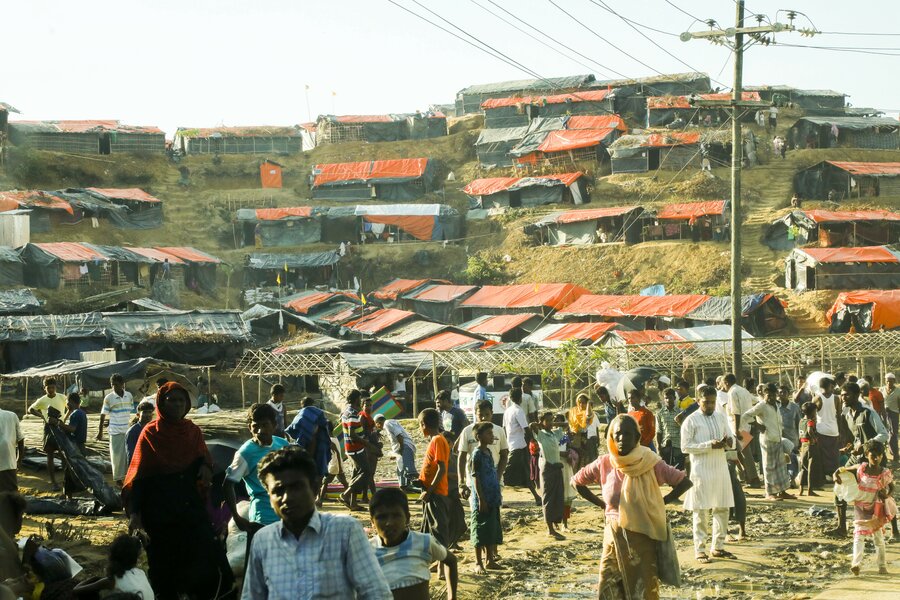For Rohingya in Bangladesh, food is not enough

Mahmuda prepares a meagre meal for her family in the makeshift shelter she built on a Bangladeshi hilltop, as she tells us about her escape from Myanmar.
"Thousands of soldiers came. They came into our houses. They killed the men and the children. Then they set our houses on fire. They threw children into the fire. They killed my husband."
She fled with her eight-year-old son, Rashid, and her mother who is blind. It took them eight days to make the crossing, over hills and through the forest, and finally over the river. They had no food on the way, she says.
Now, at least there is some. The World Food Programme (WFP) is providing food to people who have been arriving in Bangladesh since late August. More than 580,000 people will receive 25 kg of rice per family every two weeks for the next six months. We have also been providing specialized nutritious foods to families with young children, and to pregnant women and breastfeeding mothers who are particularly at risk of malnutrition.


Mahmuda had borrowed a pot earlier to cook the rice — the family lost all of their kitchen utensils when they escaped. Apart from rice there is a cucumber, carefully chopped and sprinkled with salt, and some green chillis on the side. The family eats in a hurry; the meal is over before our conversation is.
Rashid is mostly quiet. His eyes light up briefly when I introduce myself, show him the WFP logo on my vest and ask whether he has received high-energy biscuits — the nutrient-fortified cookies that WFP was distributing as a first emergency measure to people arriving across the border.
His mother explained that he used to receive these biscuits at school in Myanmar, where WFP provided them as mid-morning snacks to students. Now, the family eats them for breakfast.

Even with the immediate food needs now met, the situation remains critical. Not far away from Mahumda's shelter, children splash in puddles and play at recently installed water pumps. Despite their evident glee, it's easy to imagine what's in the water that runs off from the settlements, and in the basic and too few latrines that have been hastily dug.
People talk about diahorrea; the aid community worries about the possibility of cholera. Malnutrition exacerbates these risks, as poor nutrition can further weaken exhausted immune systems.

Mahmuda's rickety construction of bamboo poles and thin plastic sheets isn't much of a shelter. Everything feels temporary — people are still on the move even when they've arrived in Bangladesh, seeking relatives or better locations closer to distribution points or medical services. Or they're being moved along by Bangladeshi authorities who are encouraging people to settle at a new, dedicated site, where authorities and the aid community plan to build shelter for more than half a million people.
WFP's food assistance will not give these people a new home, nor does it provide a solution to the crisis. But at least it can help alleviate one of the most urgent concerns, and perhaps provide a small comfort to broken families as they share a meal together.
